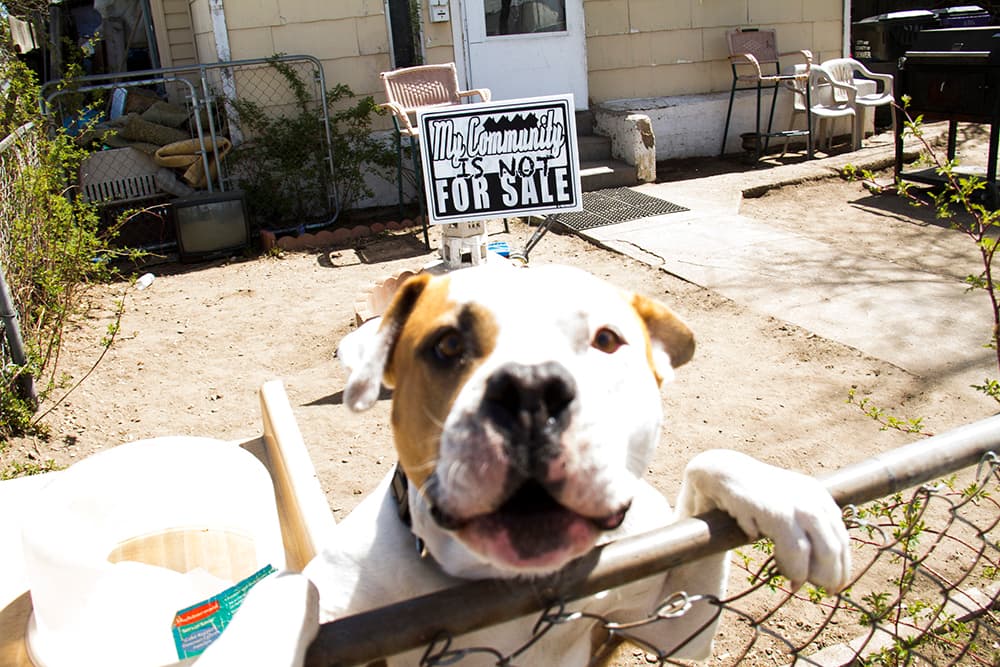
The Guardian has a long read about Denver today by Caroline Tracey.
A couple interesting points and claims:
“Eighty percent of the activists are working on I-70.” That's a quote from Jordan Hill, academic and creator of North/East Denver Change. He's talking about how complex the plans for North Denver are, from the I-70 highway expansion to the extensive storm-drainage plan.
The Guardian's piece describes Mayor Michael Hancock's efforts up there as "a political Hydra that forestalls activism."
The author also describes a shift in how Denver sees itself. The rows of cottages seemed "endless," and there were plenty of parking lots to be replaced by downtown buildings. Now, Tracey describes the city as a limited resource.
"There’s a new sense of self-awareness to the city -- even my family now talks about Denver as though they are consuming it, not just living in it."
One paragraph really stood out to me, though -- about Northside, comprising Highland, Berkeley and Sunnyside:
Since 2000, "Northside's Latino population has declined by half, from 70% to 35%, and house values have risen from an average of $100,000 to $450,000."
The Guardian lays all this at Mayor Michael Hancock's feet.
"The cost of this growth is the displacement of the city’s remaining working class, and the city government, cashing in on the boom, is leading the process."
Elsewhere, it goes further. See here, emphasis mine:
"The mayor is seeing dollar signs, provided development continues creeping northward. But he’s being cunning about it; six major plans in one area, at one time, make it difficult to understand the extent of what is going on, and nearly impossible for residents to have their voices heard."
It's a fact that Denver is rebuilding some of its lowest-income areas, and that people with money will follow, and that it will disrupt the networks of support that are neighborhoods. I know too that people in these neighborhoods have been excluded from public decisions for a long time.
I'm not sure all this is "cunning," though. Cunning means deceitful or evasive. It's a character judgment, and a harsh one to make in a piece that doesn't otherwise talk to or take stock of the mayor.
One argument for these projects in North Denver – "the Hydra" – is that they will expand the city's housing stock, and with it the benefits of modern urban design. Of course, that new urbanism has been accompanied practically everywhere in Denver by rapid gentrification – so, the fear is real.
This Monday, July 18, marks five years in office for the mayor.
And this piece in The Guardian captures frustration and anger in North Denver – the same that we've seen in our reporting.
These projects are rapidly hitting the final approval and construction phases. Hancock's new affordable housing plan, meanwhile, was just announced this week. It will "preserve or create" 6,000 residences at lower prices.
When the dust settles, some voters will judge Hancock by how well he has protected existing communities and Denver's diversity. And others, sadly, will have no idea how their new city was built.












